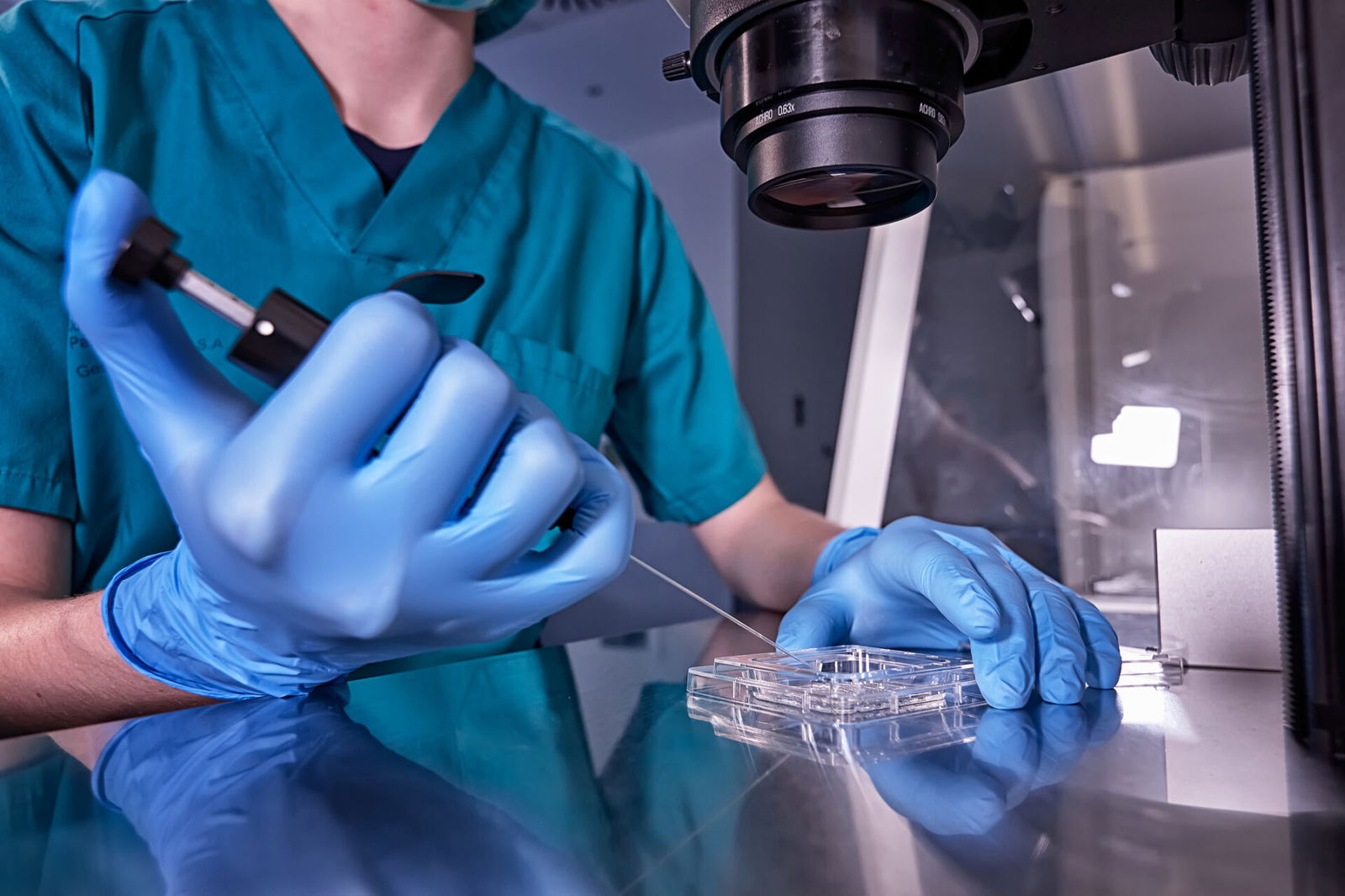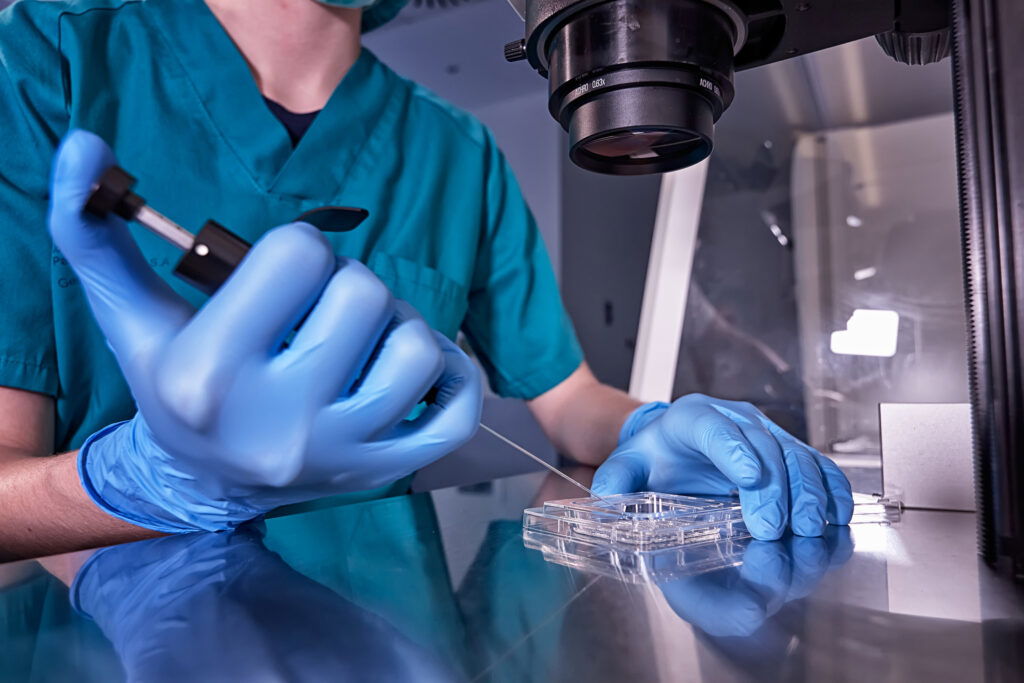
October 3, 2025
Twenty babies have been born so far from trials that deploy AI-enabled robots.
Artificial intelligence robots are making babies during multiple in vitro fertilization clinical trials (IVF).
Twenty babies have been born so far from trials that deploy AI-enabled robots to perform parts of the IVF process. The Aura system, created by Conceivable Life Sciences, automates about 205 steps of IVF. The robot is trained to handle tasks traditionally done by embryologists. Another startup, Overture Life, has run similar AI-assisted systems in Latin America and Turkey. None are yet approved to operate in the United States, The Washington Post reported.
Chief medical officer of Conceivable, Alejandro Chávez-Badiola spoke about the possible edge AI can give an embryologist. While he believes some clinics have embryologists that have exceedingly good outcomes, others do not. Chavez-Badiola says AI is the way to “replicate the superstar every time.”
“Every IVF clinic has its ICSI superstar — the embryologist who gets the best results because they just have that special touch,” Chávez-Badiola told The Post.
Director of CCRM fertility clinics, Serena H. Chen, said the technology is promising yet there are still unseen issues, as is the nature of new technology.
“For any new system … that seems to solve a problem, you probably are taking on another set of problems that sometimes you don’t really understand,” said Chen.
One woman, Alin Quintana, joined a fertility clinic trial in Mexico City in June. Quintana has gone through years of medical complications, including a lost pregnancy and emergency fallopian tube surgery. The robotic system used in her treatment supports multiple steps in IVF automatically from egg preparation to embryo creation.
For Quintana and her husband robotic, IVF offered a chance that would have otherwise been out of reach. The treatment came without the financial burden that traditional IVF often carries. She is now approximately 17 weeks into her pregnancy.
Globally, one in six adults experience some level of infertility. Yet the cost and logistical barriers of conventional IVF, including lab fees, embryologist expertise, and specialized equipment make treatment inaccessible for many. The goal of AI robot assistance is to help lower cost and expand accessibility.
Long-term outcomes, regulatory oversight, and ethical concerns remain under evaluation. Trials so far suggest that robotic systems perform as well as standard human-led methods in multiple areas. The robotic systems are able to select usable sperm and viable embryos for fertilization and early growth. But questions remain about overall pregnancy health, scalability, cost effectiveness, and how to ensure equitable use of services.
RELATED CONTENT: Conservatives Behind Project 2025 Plan To Hype U.S. Birth Rate Numbers Despite Being At An All-Time Low





